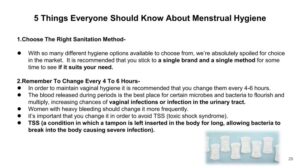
Holistic addiction therapy focuses on treating the whole person—mind, body, and spirit—in the recovery process. This integrative approach recognizes that addiction is not just a physical dependency, but also involves emotional and spiritual aspects that must be addressed for effective healing. By incorporating various methods such as yoga, meditation, and nutrition, holistic addiction therapy aims to promote overall wellness and recovery.
As we delve deeper into this topic, we will explore the principles behind holistic therapy, the significance of an integrative approach, and the tailored strategies designed for specific populations, including women and youth. This comprehensive overview will shed light on how these methods contribute to a more balanced and sustainable recovery journey.
Holistic Addiction Therapy Overview

Holistic addiction therapy is an integrative approach to treating substance use disorders, emphasizing the connection between the mind, body, and spirit. This therapy is grounded in the belief that addiction is not just a physical ailment but also encompasses emotional and spiritual dimensions. By addressing all aspects of a person’s life, holistic therapy aims to foster a comprehensive recovery process that promotes overall well-being.The core principles of holistic addiction therapy focus on treating individuals as whole beings rather than merely addressing their addiction symptoms.
This approach recognizes that emotional traumas, mental health issues, and physical health can all significantly impact a person’s recovery journey. Treating the mind, body, and spirit together can lead to more sustainable recovery outcomes. The importance of nurturing each of these components is seen as a pathway to healing and personal growth, ultimately leading to improved quality of life and long-term sobriety.
Common Methods Used in Holistic Addiction Therapy
Holistic addiction therapy employs various methods that cater to different aspects of recovery. Below are some commonly used techniques:
- Yoga: This practice promotes physical health, reduces stress, and enhances mental clarity. Yoga encourages mindfulness and body awareness, which are crucial for individuals in recovery.
- Meditation: Meditation techniques are used to cultivate presence and calmness. This practice helps individuals manage cravings and develop a deeper understanding of their thoughts and emotions.
- Acupuncture: An ancient practice that involves inserting thin needles into specific points on the body. Acupuncture has been shown to reduce withdrawal symptoms and cravings, supporting the physical aspect of recovery.
- Nutritional Counseling: Proper nutrition plays a significant role in recovery. Nutritionists help individuals develop healthy eating habits that can support healing and overall wellness.
- Art and Music Therapy: These expressive therapies allow individuals to communicate emotions and experiences that may be difficult to articulate verbally, fostering emotional healing.
The integration of these methods not only helps in alleviating withdrawal symptoms but also promotes emotional resilience and spiritual growth, which are vital for sustained recovery. Each method contributes uniquely to the recovery process, ensuring a well-rounded approach that supports individuals in their journey towards a healthier, addiction-free life.
“Holistic addiction therapy recognizes that true healing involves nurturing the mind, body, and spirit, providing a comprehensive path to recovery.”
Integrative Approaches in Holistic Addiction Therapy
Holistic addiction therapy embraces a comprehensive view of recovery, focusing not only on the psychological aspects but also on the physical, emotional, and spiritual dimensions. Integrative approaches combine various therapeutic modalities to facilitate a more profound healing process. This section delves into critical components such as nutrition, fitness, and alternative treatments, showcasing their significance in supporting addiction recovery.
Nutrition and Dietary Plans
Nutrition plays a pivotal role in the recovery process. A balanced diet can help restore bodily functions, improve mood, and reduce cravings. Nutritional deficiencies often accompany addiction, impacting mental clarity and physical well-being. Therefore, implementing a well-structured dietary plan is vital for clients. A suggested dietary plan may include:
- Whole Foods: Emphasize fruits, vegetables, whole grains, lean proteins, and healthy fats. These foods provide essential nutrients that aid in physical and mental recovery.
- Hydration: Encourage adequate water intake. Staying hydrated is crucial for optimal bodily functions and can help alleviate withdrawal symptoms.
- Adequate Protein: Incorporate sources like chicken, fish, beans, and nuts. Proteins are essential for neurotransmitter production, which can stabilize mood and reduce anxiety.
- Limit Processed Foods: Minimize intake of sugar, caffeine, and refined carbohydrates. These can contribute to mood swings and cravings.
- Regular Meals: Establishing a routine with regular meal times can help stabilize blood sugar levels and reduce cravings.
“Nutrition is not just about eating; it’s about learning to live.”
Fitness Routines Complementing Addiction Therapy
Regular physical activity is a cornerstone of holistic addiction recovery. Exercise not only fosters physical health but also enhances mental clarity and emotional resilience. A well-rounded fitness routine can alleviate stress, boost mood, and increase overall well-being. Recommended fitness activities include:
- Aerobic Exercise: Activities like running, cycling, or swimming can improve cardiovascular health and release endorphins, promoting a sense of well-being.
- Strength Training: Incorporating weightlifting or resistance bands helps build physical strength, improving self-esteem and body image.
- Yoga and Pilates: These practices enhance flexibility, balance, and mindfulness. They also support stress reduction and emotional regulation.
- Group Classes: Participating in classes can foster a sense of community and belonging that is vital for recovering individuals.
“Exercise is a celebration of what your body can do. Not a punishment for what you ate.”
Alternative Treatments in Addiction Recovery
Alternative treatments, including herbal remedies, can complement traditional addiction therapies. Many individuals find these approaches effective in managing symptoms and enhancing overall recovery. Examples of effective herbal remedies include:
- Milk Thistle: Known for its liver-supportive properties, it helps detoxify and rejuvenate the liver, which is crucial for recovering addicts.
- Passionflower: This herb is often used for its calming effects, helping to reduce anxiety and improve sleep quality.
- St. John’s Wort: Commonly used to alleviate mild depression, it can help improve mood and emotional stability during recovery.
- Ginseng: It may enhance mental clarity and reduce fatigue, supporting those in recovery who struggle with energy levels.
“Herbs are the Earth’s endless pharmacy.”
Holistic Methods for Specific Populations

In the field of holistic addiction therapy, it is essential to tailor strategies to meet the unique needs of specific populations. This approach ensures that the interventions are effective and resonate with the individuals’ experiences, ultimately fostering a more supportive recovery environment. By understanding the distinct challenges faced by various groups, practitioners can employ targeted methodologies that enhance the therapeutic process.
Holistic Strategies for Women Facing Addiction Challenges
Women experiencing addiction often face unique societal pressures and psychological challenges, including trauma, stigma, and co-occurring mental health disorders. Holistic strategies that address these complexities can significantly aid in their recovery journey. Integrative methods specifically designed for women may include:
- Mindfulness and Meditation: Techniques that promote self-awareness and emotional regulation, helping women manage stress and cravings effectively.
- Trauma-Informed Care: Approaches that recognize the impact of trauma on addiction, providing a safe space to explore personal histories and heal.
- Nutrition and Wellness Programs: Tailored dietary plans and physical activities that enhance physical health, which is often neglected during addiction.
- Support Groups: Women-only support groups that create a sense of community and shared experience, facilitating open discussions about challenges and victories.
Inclusion of Children and Adolescents in Holistic Addiction Therapy Programs
Engaging children and adolescents in holistic addiction therapy programs requires a sensitive and age-appropriate approach. These younger populations may face addiction issues directly or indirectly through familial dynamics. Holistic strategies can provide them with the tools necessary to navigate these challenges.Key methodologies for including children and adolescents encompass:
- Creative Arts Therapies: Engaging in art, music, or drama therapy can help express emotions and trauma in a non-verbal manner.
- Family Therapy: Involving the family system to rebuild relationships and educate family members about addiction.
- Empowerment Programs: Skills training and workshops focused on self-esteem, decision-making, and coping mechanisms.
- Outdoor Activities: Nature-based therapies that encourage physical activity and connection to the environment, promoting mental health.
Comparison of Holistic Treatments for Different Conditions Related to Addiction
Different conditions associated with addiction, such as anxiety, depression, and PTSD, necessitate varied holistic treatment approaches. Understanding the nuances of these conditions can facilitate a more effective recovery strategy.To illustrate the diversity in treatments, here is a comparison of holistic methods for specific conditions:
| Condition | Holistic Approach |
|---|---|
| Anxiety | Yoga and mindfulness practices to reduce stress and enhance relaxation. |
| Depression | Nutrition counseling and exercise programs to improve mood and energy levels. |
| PTSD | Eye Movement Desensitization and Reprocessing (EMDR) therapy integrated with somatic experiencing. |
“A holistic approach acknowledges the interconnectedness of mind, body, and spirit in the recovery process.”
Final Wrap-Up
In conclusion, holistic addiction therapy presents a multifaceted approach to recovery that goes beyond mere abstinence. By addressing the interconnected nature of mind, body, and spirit, individuals are better equipped to navigate their healing journey. As we understand the various methods and tailored strategies available, it’s clear that embracing holistic practices can significantly enhance the recovery experience and foster long-term well-being.
Questions Often Asked
What is holistic addiction therapy?
Holistic addiction therapy is an approach that treats the whole person by addressing physical, emotional, and spiritual needs in the recovery process.
How does nutrition play a role in recovery?
Nutrition supports recovery by providing essential nutrients that can aid in mental and physical health, helping to stabilize mood and improve overall well-being.
Can holistic methods be effective for everyone?
While holistic methods can be beneficial for many, their effectiveness may vary based on individual circumstances and needs; it’s essential to tailor the approach accordingly.
What types of fitness routines are recommended?
Fitness routines that promote overall wellness, such as yoga, aerobic exercises, and strength training, are often recommended to complement holistic addiction therapy.
Are there holistic strategies specific to women and children?
Yes, holistic strategies can be tailored to address the unique challenges faced by women and children, ensuring that their specific needs are met during recovery.





